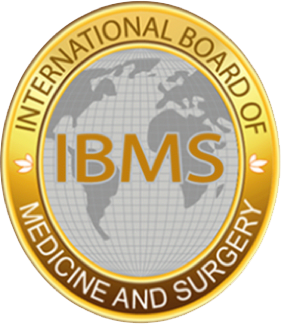| Wed, 23 Jul 2014 15:30:01 GMT
Medical tourism agencies are crucial connectors between foreign
patients and host countries. They help patients navigate countries, doctors and
specialties. But little attention has been paid to the authenticity of
information displayed on their websites and whether they follow ethical
guidelines and standards.
Agents must be educated about the ethical aspects of patient care,
prevented from exploiting patients or clients, and made to respect their
privacy and confidentiality. They must be subject to regulation at the
international level by an organisation that has the power to enforce its
decisions.
It is equally important to assess consumers’ perceptions and educate
them on the information displayed on web portals and its implications. Ethical
guidelines must also be established and followed if these companies are to
build the trust and reliance of patients.
These are the conclusions of Suchitra Wagle, a research scholar at
the Indian Institute of Technology, Bombay, who analyzed the websites of 200
medical tourism agents and published the results in an Indian Journal of
Medical Ethics report “Web-based medical facilitators in medical tourism: the
third party in decision-making”
The emergence of web-based medical tourism agents has added a new
dimension to the phenomenon of cross-border travel. They help patients navigate
countries, doctors and specialties. However, little attention has been paid to
the authenticity of information displayed on the facilitators’ web portals, and
whether they follow ethical guidelines and standards.
The research analyses the available information on 208 agency
websites across 47 countries for the services offered. India was the most common
destination country linked to 81 agents. The five countries with the most
agents were
USA, UK, India, Canada and Poland. The paper identifies concerns
regarding the information displayed about patients’ safety, and the maintenance
of confidentiality. There is a need to develop ethical standards.
Extracts from the full paper:
“There is no control over the type of information displayed on
websites. A study based on framing theory shows that positively framed
information – such as when web portals carry photographs of accredited
hospitals equipped with the latest technology, or success stories of foreign
patients – can influence consumers’ decisions. However, while doing this, the
websites may ignore important issues such as information about the risks associated
with surgeries, or about post- operative care. There are also questions about
the accuracy of the information transmitted to patients. Additionally, when
patients provide personal medical information, ethical questions arise
regarding privacy and confidentiality. These portals may not always provide
information about the healthcare laws and regulations in the host country.
Studies have shown that limited information is displayed on the web portals,
specifically about legal aspects and patients’ rights. There do not seem to be any regulatory
boundaries within which facilitators should function.
Cost is considered to be the major pull factor for medical tourists
and web portals are cashing in on this aspect. Out of 120 agencies displaying
information about prices, 36 provided a price comparison between the prices in
the host country with various destination countries. For example, prices for
various medical procedures such as bypass surgery or knee replacement were
compared across the USA, the UK, India, Singapore and Thailand.
Patients’ testimonials usually appeared on the side columns and
described good experiences of medical tourists with the hospital or the doctor.
Web portals providing cosmetic service information carried before and after photographs
of patients.
The most common services were medical and cosmetic procedures,
followed by ophthalmic and dental services. Specialized surgical procedures
covered heart surgeries including bypass and angiography, hip replacement
procedures. Cosmetic procedures included weight loss techniques, breast
augmentation surgeries and body sculpting procedures. Some portals were
dedicated to dental and eye procedures. Ophthalmic procedures were chiefly
LASIK operations. Most of the portals providing cosmetic services were also
linked to dental services.
The websites studied displayed patient information in the form of
testimonials and photographs, along with the type of treatment taken, and other
details. Such information could be very sensitive and patients may not want to
disclose it. It is not clear whether patients gave consent for these details to
be made public.
Aftercare was given the least importance by the portals, usually
described in a one-line reply as part of the frequently asked questions.
Patients may be attracted by price comparisons and perceived quality
of care. However, important issues such as confidentiality of information,
aftercare and patient’s rights are not prominently discussed on these sites.
Privacy and data protection are important subjects when technology allows
information to be easily stored, retrieved, accessed and exchanged. When
medical information is posted without any data protection, the confidentiality
of patients’ personal information is compromised. Further, medical tourists
return to their home country after the treatment, so providing information
about aftercare is very important.
The fact that none of the websites mentions patients’ rights should
be taken into consideration at the time of formulating guidelines. The
proliferation of agencies raises ethical concerns that highlight the need for
regulatory measures.
Recommendations
·Portals can be evaluated and
rated by health professionals to enable patients to better determine the
quality of information.
·They should also receive
accreditation by international bodies.
·Information about the health
provider is a decisive factor while choosing a hospital. Agents should ensure
that they provide correct information about the education, qualification and
years of experience along with the registration details of the provider.
·They must ensure information
shared by patients on these sites is kept confidential.
·Patients should receive
information on the potential risks of a procedure, as well as any risk
associated with their travel and stay, before they make a decision to use
medical tourism.
·The medical tourist must be informed of relevant health regulations and ethical guidelines in the country where s/he is going for treatment.
|
